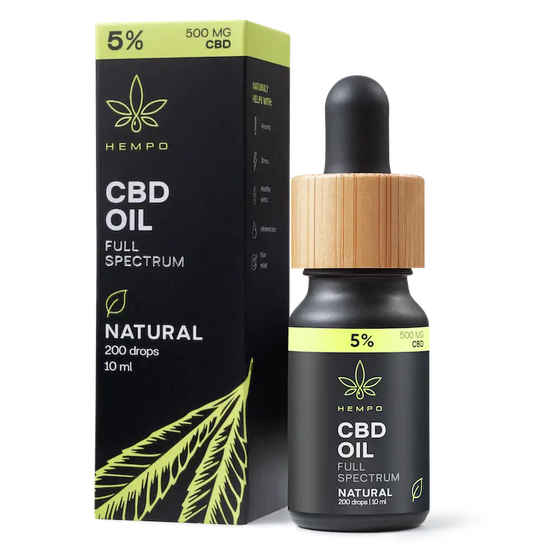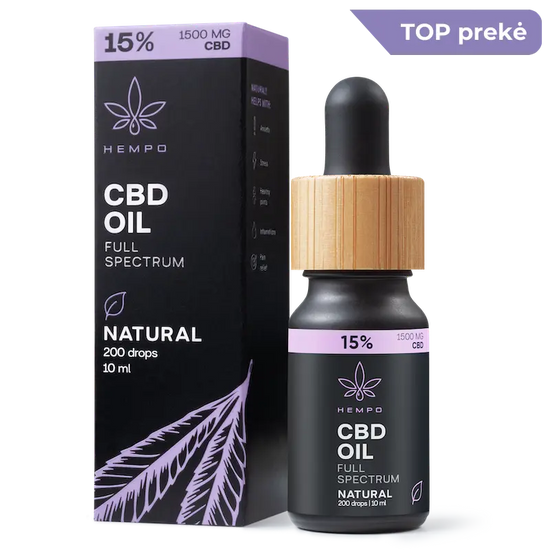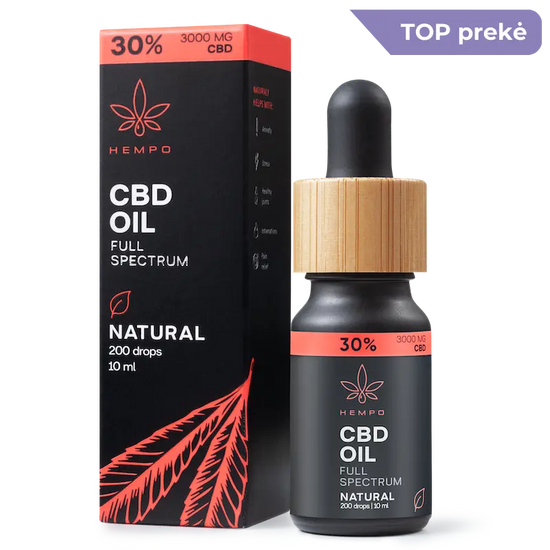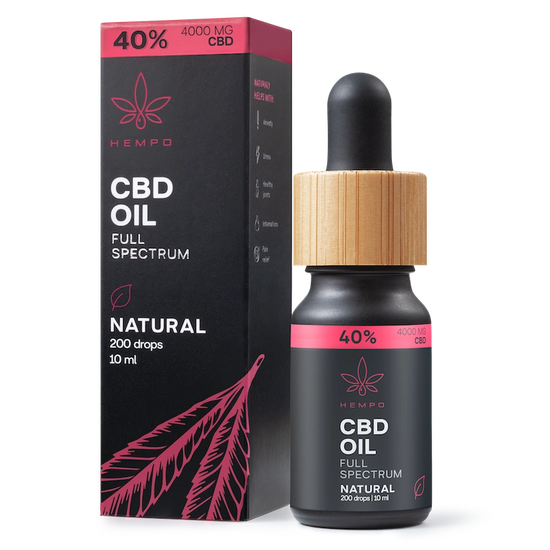Global trends in the regulation of CBD as a dietary supplement
This article examines regulatory trends in the use of cannabidiol (CBD) as an ingredient in foods and dietary supplements and provides guidance for companies on how to interpret current regulation and anticipate its future direction. The article also discusses the current regulatory complexities and resulting challenges for CBD product manufacturers, and outlines the opportunities to bring CBD-containing foods and supplements to markets around the world.
Table of Contents
Note: This and other articles on Hempo's blog are for informational purposes only. According to the directive of the European Commission, cannabidiol is classified as a 'novel food', therefore CBD products should not be used as a food supplement in Lithuania.
Introduction
Cannabidiol is one of the natural cannabinoids found in the hemp plant. hemp sativa L. (C sativa) plant contains many cannabinoids, the most common of which are delta-9-tetrahydrocannabinol (THC) and CBD.
Hemp-derived CBD products, including extracts or isolates, have become an extremely popular ingredient in foods, beverages and nutritional supplements due to their very low levels of THC (a psychoactive plant compound) and their claimed health benefits , related to stress reduction, mood improvement, etc. CBD ingredients can be found in a variety of products, such as oils, confectionery, beverages or dietary supplements.
The hemp and CBD market is reportedly one of the fastest growing product categories in the world. This rapid growth has been helped by the fact that hemp has been classified as a legal agricultural product - it has been encouraged to grow it for its environmental benefits, and recent legal decisions allow CBD to be considered as a potential food ingredient.
However, the legal status of hemp and CBD as a food ingredient in several global markets (countries) has been established recently. In some cases, there are specific regulations and guidelines that set clear conditions for the use of CBD in food and dietary supplements. In other cases, a safety evaluation is still required before products containing hemp-derived CBD ingredients can be legally marketed. In many other countries, CBD ingredients in food and beverages are still not allowed or their use is severely restricted.
Questions regarding the regulation of CBD as a food ingredient are related to food safety and public health, mainly due to the potential presence of THC. Also of concern is the marketing of CBD products, whose claimed health benefits must be scientifically based.
In this sense, the results of safety evaluations could contribute to the further commercialization of food products containing hemp-derived CBD ingredients and encourage other countries to follow suit and also regulate their use.
Given the current regulatory landscape and trends surrounding CBD as a food ingredient, companies need to be aware of the key requirements and conditions in order to assess the challenges and opportunities they face when developing marketing strategies.
CBD classification in international law
1961 also adopted in 1972 The amended United Nations General Convention on Narcotic Drugs included hemp in the lists of controlled substances - i.e. any plant of the hemp genus - and certain products derived from hemp. These include Schedule I for "drugs subject to all drug controls" and Schedule IV for "drugs subject to all Schedule I drug controls and additional special controls." Although the Convention does not apply to industrial hemp cultivation (e.g., fiber and seeds) or for horticultural purposes, countries that permit the cultivation of hemp must adopt controls deemed necessary to prevent abuse ( source ).
World Health Organization (WHO) 2018 in June published a report concluding that there is no evidence of any public health problems associated with the use of pure CBD. In addition, in 2019 January:
- hemp and hemp resin were to be removed from the 1961 Schedule IV of the General Convention on Narcotic Drugs.
- Hemp extracts and tinctures were to be removed from the 1961 Act. Schedule I of the General Convention on Narcotic Drugs.
- By 1961 The following footnote should have been added to the Convention's Schedule I entry for hemp and hemp resin: "Preparations containing mainly cannabidiol and not more than 0.2% THC are not internationally controlled."
The 63rd session of the KND voted against the other two recommendations while voting to remove hemp and hemp resin from Schedule IV. Following this vote, hemp extracts and tinctures remain on the list of internationally controlled substances, with no exemptions for CBD preparations containing no more than 0.2%.
A key question in this regard was the extent to which this decision would affect the interpretation of conventions by regulatory bodies around the world when considering the classification of CBD.
CBD in Foods: Trends by Region
Asia, Europe, Latin America, North America and Oceania have various examples of how food products and nutritional supplements containing hemp-derived CBD ingredients can be marketed.
Asia
Marketing regulations for CBD in food and dietary supplements are limited in this region. In some cases, compliance with positive or negative lists of substances for food or non-medicinal use is required, as follows:
- C. sativa seeds are included in the "non-medicinal list" in Japan. CBD oil extracted from mature hemp stalks and seeds is not considered hemp. Accordingly, the importation of CBD products, such as THC-free CBD oil, would be permitted under the 1999 Act. Guidelines published by the Ministry of Health, Labor and Welfare. The import of chemically synthesized CBD would also be allowed if the importer proves that it is not hemp.
In China, mature C. sativa seeds have long been used as traditional medicine (for digestive health) and food. They were included in the first 2002 A batch of the "list of botanical ingredients recognized as suitable for food and medicinal use" issued by the Chinese authorities. On the other hand, it is not yet clear whether the recent addition of four types of hemp-related raw materials, including CBD, to the lists of prohibited ingredients and cosmetic raw materials may affect further bans related to their use in other product categories.
- In South Korea, hemp seeds are also allowed to be used as a food ingredient as long as their husks (petals and outer epidermis) are completely removed.
- In Hong Kong, CBD, which does not contain THC, does not fall under the Dangerous Drugs Ordinance and is therefore permitted for use in food products.
- In Southeast Asia, Thailand passed a regulation earlier this year to promote and develop the economic culture of hemp. CBD oil made only from hemp seeds is permitted for use in food products and dietary supplements. The Regulation establishes clear rules for hemp or C. sativa seeds, hemp seed oil, hemp seed protein, conditions of use and maximum permissible THC and CBD concentration limits in various categories of food products, including dietary supplements.
Europe
Recent decisions by international organizations and European courts have contributed to changes in the assessment of CBD as a food product or even a "new food". in 2020 In October, the European Commission published its preliminary opinion on CBD, which can be summarized as follows:
- CBD, extracted from the flowering and fruiting tops of hemp plants, is listed in UN Convention I (i.e. "hemp extracts and tinctures") is therefore considered a narcotic substance and does not fall under the European Union (EU) definition of a food product.
- Synthetic CBD is outside the scope of the UN Convention because it is not produced from a plant and can therefore be considered a "food".
- Where CBD is outside the scope of the UN Convention, the products fall within the scope of the EU Novel Food Regulation.
However, the EU Court of Justice in 2020 in November in case C-663/1812 decided that "a Member State cannot prohibit the sale of CBD legally produced in another Member State when it is extracted from the whole plant of hemp (hemp sativa) and not only from its fiber and seeds". In its decision, the court noted that:
- CBD cannot be considered a "narcotic".
- In order to define the terms "drug" or "narcotic substance", EU law refers to two UN conventions - the Convention on Psychotropic Substances and the General Convention on Narcotic Drugs.
- CBD is not mentioned in the first convention, and while it is true that a literal interpretation of the latter convention could classify it as a drug, since it is an extract of hemp, such an interpretation would be contrary to the general spirit of that convention and its purpose to protect "the health and well-being of mankind"
- Based on current scientific knowledge, CBD does not appear to have any psychotropic effects or harmful effects on human health, unlike THC.
In light of the court decision, the European Commission revised its preliminary assessment and in 2020 December. concluded that "cannabinoids should not be considered drugs as defined in the 1961 Schedule IV of the General Convention on Narcotic Drugs. This means that cannabinoids can be considered food.”
Food products and ingredients falling within the scope of the EU Novel Food Regulation require prior approval. In this regulation, "novel food" is defined as any food product which, before 1997, May 15, when the first novel food regulation came into force, was not widely used in human consumption in the EU. Only novel foods that are authorized and included in the positive list of authorized novel foods in the EU may be placed on the EU market as such or used in or on foods, subject to the conditions of use and labeling requirements set forth therein. In order to make a decision on the authorization of a new food product or its ingredient, the European Food Safety Authority (EFSA) must carry out a safety assessment.
Given all of this, the question is whether and to what extent CBD products fall within the scope of the EU Novel Food Regulation. According to the EU Novel Food Catalogue, a non-mandatory document that lists various foods according to their "novelty" status:
- Cultivation of C. sativa hemp is allowed if it is registered in the EU General Catalog of Agricultural Plant Species and the THC content does not exceed 0.2%. Some products derived from the hemp sativa plant or its parts, such as seeds, seed oil, hemp seed meal and defatted hemp seeds, have been used in the EU before and are therefore not new. Other specific national legislation may restrict the placing on the market of this product as a food or food ingredient in some Member States, therefore it is important to check with the national competent authorities.
- The hemp plant contains many cannabinoids, the most common of which are: THC and CBD. Without prejudice to the information provided in the Catalog of Novel Foods on C. sativa record, C. sativa extracts and derivatives containing cannabinoids are considered novel foods because there is no proven history of their use. This applies both to the extracts themselves and to any products in which they are added as an ingredient (e.g., hemp seed oil). This provision also applies to extracts of other plants containing cannabinoids. Synthetically derived cannabinoids are considered novel foods.
In view of this, although certain parts of hemp are not considered new, the European Commission in May of this year explained again that:
In 2019 EU member states were of the opinion that it cannot be proven that until 1997 May 15 CBD has been used for human consumption and should therefore be subject to the Novel Food Regulation. This position has been entered in the Novel Food Catalogue.
CBD should be considered a "novel food" and be subject to a pre-market authorization process. To date, no CBD product has been authorized as a novel food product in the EU.
It is worth noting that several applications for new food products related to CBD have been submitted by companies individually or in consortium through the European Industrial Hemp Association. These were suspended for a preliminary assessment by the European Commission, but the review also confirmed that existing CBD-related novel food applications can be renewed as their validity is examined. According to the EU regulation on novel foods, the European Commission will transfer valid applications to EFSA no later than 1 month after the validity of the applications, which could change its opinion within 9 months from the date of receipt of the application.
While this process is underway, it appears that EU member states apply and interpret the use of hemp and CBD in food inconsistently, especially if we take into account that THC limits in food may differ between them.
United Kingdom
In 2021 January 1 The United Kingdom became a third country when it left the EU and has since been subject to EU law, with the exception of Northern Ireland. Under an agreement between the UK and the EU, any company seeking to market food and nutritional supplements containing CBD in Northern Ireland must comply with the requirements and procedures of EU law. UK law applies whenever CBD-containing foods and supplements are marketed in England, Wales or Scotland. The government body responsible for food safety in England and Wales is the Food Standards Agency (FSA) and in Scotland the Food Standards Agency (FSS). According to the FSA, CBD extracts fall within the scope of UK novel food regulation. The FSA requires the CBD industry to submit new food product approval applications to the FSA.
Given the prevalence of CBD-containing foods and supplements on the UK market, the FSA has taken a different approach and, unlike the EU, allows companies to continue marketing CBD products that are already on the market in 2020. February 13, when the agency announced the deadline for novel food applications. These products can continue to be marketed if they are safe, properly labelled, do not contain THC or other substances subject to drug legislation, and if they are related to the 2021 March 31 a novel food application was submitted and subsequently approved.
The FSS decided otherwise - it does not allow novel food ingredients to be sold on the Scottish market until they are fully approved, but applications should be made to the FSA without the need to make a separate application to the FSS.
2021 In April, the FSA published a list of CBD food products sold in England and Wales that should be allowed to be placed on the market pending a decision on their authorisation. This list is divided into two parts that include products related to applications that:
- Or have been approved and progressed to a safety assessment;
- Or are "suspended" because applicants have submitted firm plans to complete the risk assessment, but have not yet provided all the information necessary to continue the process.
Switzerland
Swiss law allows the use of CBD in food and dietary supplements. On the one hand, foods containing cannabinoids such as CBD and C. sativa extracts and derivatives containing cannabinoids (e.g., hemp seed oil with CBD, dietary supplements with CBD), are considered novel food products. Therefore, they must be licensed by the Swiss authorities or authorized by the European Commission before they can be traded.
On the other hand, products obtained from C. sativa or from parts of the plant which, until 1997, May 15 have been documented as safe and widely used for human consumption in the EU, are not considered novel foods in Switzerland. This applies in particular to hemp seeds, hemp seed oil, hemp seed flour and defatted hemp seeds. In addition, in Switzerland, herbal tea obtained from the seed hemp C. sativa leaves, not considered a novel food. The latter can be used to flavor food products without a license. A prerequisite - the herbal tea must be used as an aqueous infusion and not in any other form (eg., concentrated or as a syrup).
Swiss law also provides for clear CBD labeling rules and permitted THC levels in food products.
Latin America
While the industrial or medical use of hemp is regulated in the Latin American region, Uruguay and Ecuador have adopted specific regulations for the use of hemp seed protein and CBD in food products.
Uruguay. Decree no. 19/2020 amended the National Bromatology Regulation to allow the use of hemp seed proteins derived from C. sativa industrial hemp seeds or nuts in the processing of the residual oil extraction product with a maximum THC concentration in the powdered component not exceeding 10 mg/kg.
Ecuador. All non-psychoactive hemp or hemp parts or non-psychoactive hemp or hemp derivatives may be used as an ingredient in processed foods and dietary supplements with a THC concentration of less than 0.3% in the final product. Non-psychoactive hemp or hemp is defined as consisting of oils, resins, tinctures, crude extracts or other technological innovations obtained from non-psychoactive hemp or hemp with a THC concentration of less than 1%, including cannabinoids, isomers, acids, terpenes
North America
Canada. 2019 An amendment to the Canadian Hemp Act allows edible hemp, including processed hemp food products - from dehulled hemp seeds, hemp seed oil, protein concentrate and roasted hemp seeds - to be sold for consumption. hemp foods must contain less than 10 μg/g THC. Most hemp-related activities are exempt from the Hemp Act and are regulated under the Industrial Hemp Regulations.
Dietary supplements are classified as natural health products (NHP) in Canada. According to NHP regulations, only limited hemp or hemp plant parts can be used. NHP can only contain hemp and parts of the hemp plant that are not considered hemp under the Hemp Act or are not covered by the Act. These include:
- non-viable seeds,
- hemp seed derivatives compliant with Industrial Hemp Regulations,
- mature stems free from leaves, flowers, seeds, branches and fibers from such stems.
Phytocannabinoids are not allowed to be deliberately added to such products.
United States of America. The Law on the Improvement of Agriculture, also known as 2018 According to the agricultural bill, hemp is legalized as an agricultural commodity with a THC concentration of no more than 0.3%. Since then, there has been a significant increase in CBD-containing foods and supplements on the US market. Despite this, the Food and Drug Administration (FDA) has not taken steps to regulate CBD.
The FDA has consistently declared that CBD cannot be legally sold in foods and supplements because the hemp-derived compound was primarily studied as a medicine. While acknowledging that CBD is now widely available, the agency said the safety profile of CBD and many other hemp-derived compounds is still poorly understood, and it needs better data to make science-based decisions.
The FDA has taken enforcement action and sent warning letters to companies regarding the use of CBD in their products. However, it appears that such warning letters have mostly been aimed at companies that advertise their products and make unsubstantiated claims about CBD's health or therapeutic properties.
Meanwhile, due to the lack of federal regulations, several states such as New York, Texas and Virginia have recently introduced their own regulations on the use of CBD or hemp extracts in food products and dietary supplements, further complicating market regulation.
At the federal level, several bills have been introduced in the US Congress to allow the use of hemp and hemp-derived CBD as an ingredient in food and nutritional supplements. For example, in April of this year, the bill H. was submitted to the House of Representatives.R84130, which says that "it is intended that hemp, hemp-derived cannabidiol, and any other hemp-derived ingredient be lawfully used under the Federal Food, Drug, and Cosmetic Act as an ingredient in dietary supplements and for other purposes." In addition, the draft law S. was submitted to the Senate in May.169831, which says it "allows the use of hemp-derived cannabidiol and hemp-derived cannabidiol-containing substances in dietary supplements and food products."
Despite these initiatives at the federal level, industry representatives continue to petition the FDA for a safety evaluation and regulation of CBD as an ingredient in food and dietary supplements.
Oceania
2017 Transatlantic ministers from Australia and New Zealand have approved an amendment to the Australian and New Zealand Food Standards Code to allow the sale of low-THC hemp - C. sativa - seeds as a food product or ingredient for human consumption, if the seeds contain only naturally occurring cannabinoids. In order for this to happen, certain changes to several food and drug regulations that came into force in 2018 had to be implemented. in November The amended provisions set clear conditions for the use of hemp seeds, including extracts, oil and beverages, by setting maximum limits for THC and CBD.
Summary
Hemp plant C. sativa and plant parts such as seeds, seed oil, hemp seed meal, hemp seed protein, etc., as well as the nutritional status of CBD is quite widely recognized in various parts of the world, but the regulation of this status still remains complex.
On the one hand, there are different regulations and criteria regarding the parts of the plant that are considered the source of the food ingredient, as well as the maximum THC content of the ingredient or the final product. On the other hand, there are significant differences in how national authorities interpret and apply existing regulations regarding isolated CBD, full-spectrum CBD and synthetic CBD.
In the current context, it is clear that the growth of the market is mainly due to the online sales of products containing CBD. It appeared that larger food and supplement companies would wait for further clarification of regulatory challenges and the results of ongoing safety assessments, but there are already examples of international ingredient suppliers taking an increasing interest in hemp-derived ingredients, including CBD. In light of this, this trend may eventually trigger the entry of the largest companies with the ability to storm global markets.
In conclusion, it is extremely important for companies to stay abreast of this ever-changing regulatory environment so that they can develop and implement successful marketing strategies and properly assess the future prospects of their business.





